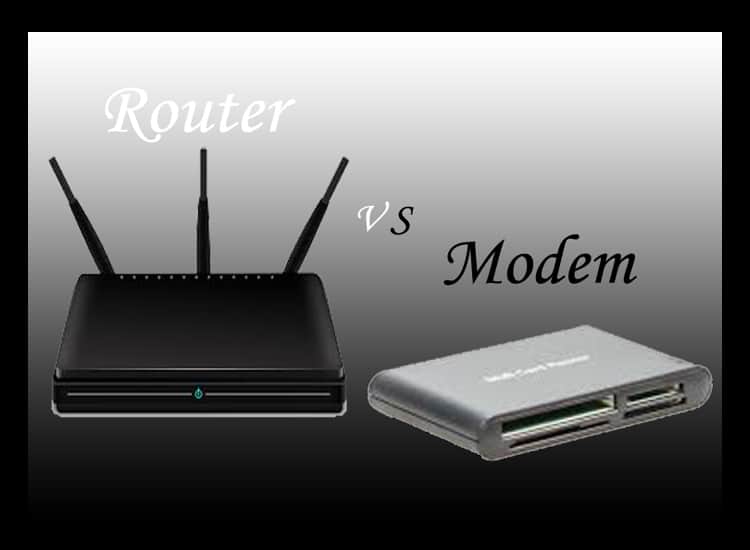
Computer Network refers to a set of computers connected together in order to share resources. Today, one of the most shared resources in a computer network is the connection to the internet. To share the resources effectively, a computer network needs a number of key components including a router, modem, and a gateway among others.
Modems and routers are two of the most common computer network components. The two are involved in connecting an individual’s home personal computers to the internet. However, it is clear that many people fail to know the functionality of each one of them. Despite the fact that these two peripherals may look similar, they each have a distinct function.
A modem is a computer network component that modulates and demodulates signals in order to convert them from analog to digital and vice versa. It’s responsible for encoding and decoding information for it to pass between the home network and the Internet Service provider. A router, on the other hand, is a computer network component that is responsible for creating a network and allowing several devices to connect to the network. In short, the modem brings in the information and the router routes it to different multiple devices such as PCs and mobile phones
A router is known to provide access to a Local Area Network. However, this connection does not guarantee the user access to the internet. A router needs a modem to connect devices in the network to the internet. Most modern routers have an Ethernet port that is made in such a way that it can connect to an Ethernet port of a DSL modem or a cable.
Other Differences Between a Router and A Modem
a) OSI model layer
A modem is found in the second layer of the OSI model, which is the data link layer. This is because it is used for communicating in point to point manner with other devices. A router, on the other hand, falls under the network layer.
b) Functionality
The modem’s function is to facilitate the connection to the internet by receiving and transmitting data and information over telephone lines. A router’s main function is to direct data in a network. It’s responsible for passing data packets between a modem and a computer or among individual computers.
c) Security
A modem is less insecure since it does not contain any security measures. However, the router provides security measures to safeguard the network.
d) Connectivity
A modem is capable of connecting to one PC via Ethernet ports while a router can connect to multiple computers via Wi-Fi or the Ethernet.
e) Necessity
A modem is necessary for internet connection. A router, on the other hand, is not necessary for internet connection but is essential in providing additional security as well as for allowing multiple connections by creating a network.
f) Independence
In terms of independence, a modem is capable of delivering information such as internet access to a computer without relying on the router. A router, on the other hand, cannot get internet access without relying on the modem but can share information between computers.
Conclusion
It is evident that there are vast differences between a router and a modem. This includes their functionality, security, and connectivity. However, in modern networking, the two peripheral can be combined into a single hybrid device known as the gateway which simplifies the connection process.
![[Cover] Netgear R9000 Review](https://www.techlifeland.com/wp-content/uploads/2020/04/Cover-Netgear-R9000-Review.jpg)
![[Cover] Netgear R7000 Review](https://www.techlifeland.com/wp-content/uploads/2019/05/Cover-Netgear-R7000-Review.jpg)
![[Cover] Linksys Velop Home Mesh WiFi System Review](https://www.techlifeland.com/wp-content/uploads/2020/04/Cover-Linksys-Velop-Home-Mesh-WiFi-System-Review.jpg)